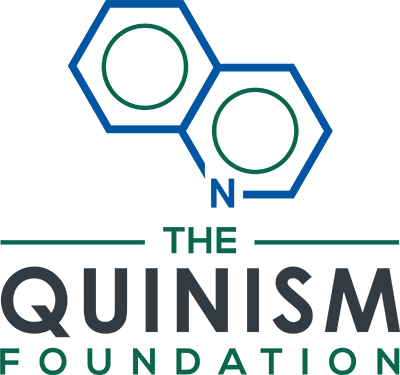The Quinism Foundation Expresses Concern That Department of Veterans Affairs (VA) Disability Examiners Are Misattributing Chronic Adverse Effects of Mefloquine to PTSD
Although DSM-5 Diagnostic Criteria Exclude the Diagnosis of PTSD if Symptoms Such as Insomnia and Nightmares Are Attributable to Medication Effects, VA Disability Examiners Do Not Routinely Screen Veterans for a History of Symptomatic Mefloquine Exposure
WHITE RIVER JUNCTION, VT. (PRWEB) NOVEMBER 29, 2018
The Quinism Foundation has sent correspondence to Dr. Paul R. Lawrence, Under Secretary for Benefits at the Department of Veterans Affairs (VA), expressing concern that disability examiners may be misattributing adverse effects from the antimalarial drug mefloquine to PTSD in VA medical disability examinations.
“DSM-5 PTSD Criterion H requires that the examiner determine that the disturbance is not attributable to the physiological effects of a medication,” said Remington Nevin, MD, MPH, DrPH, executive director of The Quinism Foundation. “We are concerned that this criterion is being widely assumed by examiners without due consideration for the possible effects of mefloquine exposure.”
Mefloquine has been widely used by the Department of Defense (DoD), particularly for the prevention (or prophylaxis) of malaria among U.S. military personnel, since it was licensed by the U.S. Food and Drug Administration (FDA) in 1989. In 2013, after nearly a quarter-century of use by DoD, the FDA warned that mefloquine can cause long-lasting and even permanent neuropsychiatric adverse effects [1]. The DoD has since declared mefloquine “a drug of last resort,” and has all but eliminated the drug’s use [2].
According to the FDA, chronic neuropsychiatric adverse effects from mefloquine exposure include insomnia, depression, anxiety, and paranoia, among others. Authors at the U.S. military’s Walter Reed Army Institute of Research (WRAIR) [3], where mefloquine was developed, have noted that “mefloquine toxicity can persist for several years after exposure has been discontinued, with little to no abatement in symptoms over time. Furthermore, given the overlapping symptoms of post-traumatic stress disorder [PTSD] and mefloquine toxicity, it can be challenging to distinguish between the two diagnoses.”
In its correspondence, which was shared with executives at Logistics Health Incorporated, QTC Management Incorporated, and VetFed Resources Incorporated (three federally-contracted providers of VA medical disability examinations), Dr. Nevin shared results from The Quinism Foundation’s recent review of veterans’ disability medical examination documentation.
“The Quinism Foundation has recently reviewed a number of PTSD disability benefits questionnaires (DBQ) completed by examiners in which Criterion H was deemed to have been met without documentation that the examiner considered the possible physiological effects of mefloquine in contributing to the disturbance,” wrote Dr. Nevin. “In many cases, these examiners concluded Criterion H was met even when the veteran specifically attributed several of their PTSD Criterion B-E symptoms, such as nightmares, insomnia, irritability, and anger, to chronic effects of their mefloquine exposure, rather than to one or more Criterion A traumatic stressors. In several cases, available documentation reliably places the onset of these symptoms well prior to any Criterion A traumatic stressors, and within days following the veteran’s initial exposure to mefloquine.”
“Although the current PTSD DBQ specifically advises examiners to ‘NOT mark symptoms… that are clearly not attributable to the Criterion A stressor/PTSD,’ and warns that ‘overlapping symptoms clearly attributable to other things’ should be noted elsewhere, there appears to be no formal mechanism for examiners conducting VA medical disability examinations to screen veterans for symptoms that could be due to mefloquine exposure,” wrote Dr. Nevin.
In its correspondence, The Quinism Foundation encouraged examiners to formally screen recent veterans for a history of symptomatic exposure to mefloquine during VA medical disability examinations.
“Screening for such symptomatic exposure during a medical disability examination can be as quick and simple as asking the veteran ‘Did you take mefloquine’, and if so, ‘While you were taking the drug, did you experience one or more of these symptoms?’,” wrote Dr. Nevin. “If the veteran reports symptomatic exposure, examiners should retain an index of suspicion that any chronic neurologic or psychiatric symptoms, including those reported, could represent effects of mefloquine poisoning, specifically, symptoms of a medical condition also known as chronic quinoline encephalopathy or neuropsychiatric quinism.”
“In such cases, a DSM-5 diagnosis of a medication-induced anxiety, sleep, mood, or psychotic disorder may be more appropriate than a comparable diagnosis, such as PTSD, which is excluded by DSM-5 criteria if the disturbance is due to the lasting physiological effects of a medication,” wrote Dr. Nevin.
In its correspondence, The Quinism Foundation noted that it has recently begun partnering with several health care organizations, including in the U.K. [4] and Canada [5], to make available its two-question White River Mefloquine Instrument (WRMI-2), to facilitate screening for symptomatic mefloquine exposure in veteran populations. The Quinism Foundation has previously called upon the VA [6], as well as Veterans Affairs Canada (VAC) [7], to screen all recent U.S. and Canadian veterans to improve the quality of medical care provided by these organizations.
About The Quinism Foundation
The Quinism Foundation, founded in January 2018, in White River Junction, Vermont, promotes and supports education and research on quinism, the family of medical disorders caused by exposure to quinoline drugs, including mefloquine and tafenoquine.
Dr. Nevin is a board-certified occupational medicine and preventive medicine physician and former U.S. Army medical officer and epidemiologist. He is author of more than 30 scientific publications on malaria and the quinoline antimalarials, including “Screening for Symptomatic Mefloquine Exposure Among Veterans With Chronic Psychiatric Symptoms,” published in the journal Federal Practitioner (https:// https://www.mdedge.com/fedprac/article/132560/mental-health/screening-symptomatic-mefloquine-exposure-among-veterans).
1. U.S. Food and Drug Administration. FDA approves label changes for antimalarial drug mefloquine hydrochloride due to risk of serious psychiatric and nerve side effects. July 29, 2013. http://www.fda.gov/downloads/Drugs/DrugSafety/UCM362232.pdf.
2. Nevin RL. Screening for Symptomatic Mefloquine Exposure Among Veterans With Chronic Psychiatric Symptoms. Federal Practitioner. 2017;34(3):12-14.
3. Livezey J, Oliver T, Cantilena L. Prolonged Neuropsychiatric Symptoms in a Military Service Member Exposed to Mefloquine. Drug Safety – Case Reports. 2016;3(1):7.
4. The Quinism Foundation. The Quinism Foundation Partners with the National Centre for Trauma to Screen U.K. Veterans for Symptomatic Mefloquine Exposure. July 30, 2018. https://quinism.org/press-releases/the-quinism-foundation-partners-with-the-national-centre-for-trauma-to-screen-u-k-veterans-for-symptomatic-mefloquine-exposure.
5. The Quinism Foundation. The Quinism Foundation Partners with Lifemark Health Group to Identify Canadian Veterans at Risk from Exposure to the Antimalarial Drug Mefloquine. September 17, 2018. https://quinism.org/press-releases/the-quinism-foundation-partners-with-lifemark-health-group-to-identify-canadian-veterans-at-risk-from-exposure-to-the-antimalarial-drug-mefloquine.
6. The Quinism Foundation. The Quinism Foundation Calls on the Department of Veterans Affairs to Screen Recent Veterans for Symptomatic Mefloquine Exposure. May 29, 2018. https://quinism.org/press-releases/the-quinism-foundation-calls-on-the-department-of-veterans-affairs-to-screen-recent-veterans-for-symptomatic-mefloquine-exposure.
7. The Quinism Foundation. The Quinism Foundation Calls on Veterans Affairs Canada to Screen Recent Canadian Veterans for Symptomatic Mefloquine Exposure. September 19, 2018. https://quinism.org/press-releases/the-quinism-foundation-calls-on-veterans-affairs-canada-to-screen-recent-canadian-veterans-for-symptomatic-mefloquine-exposure.

